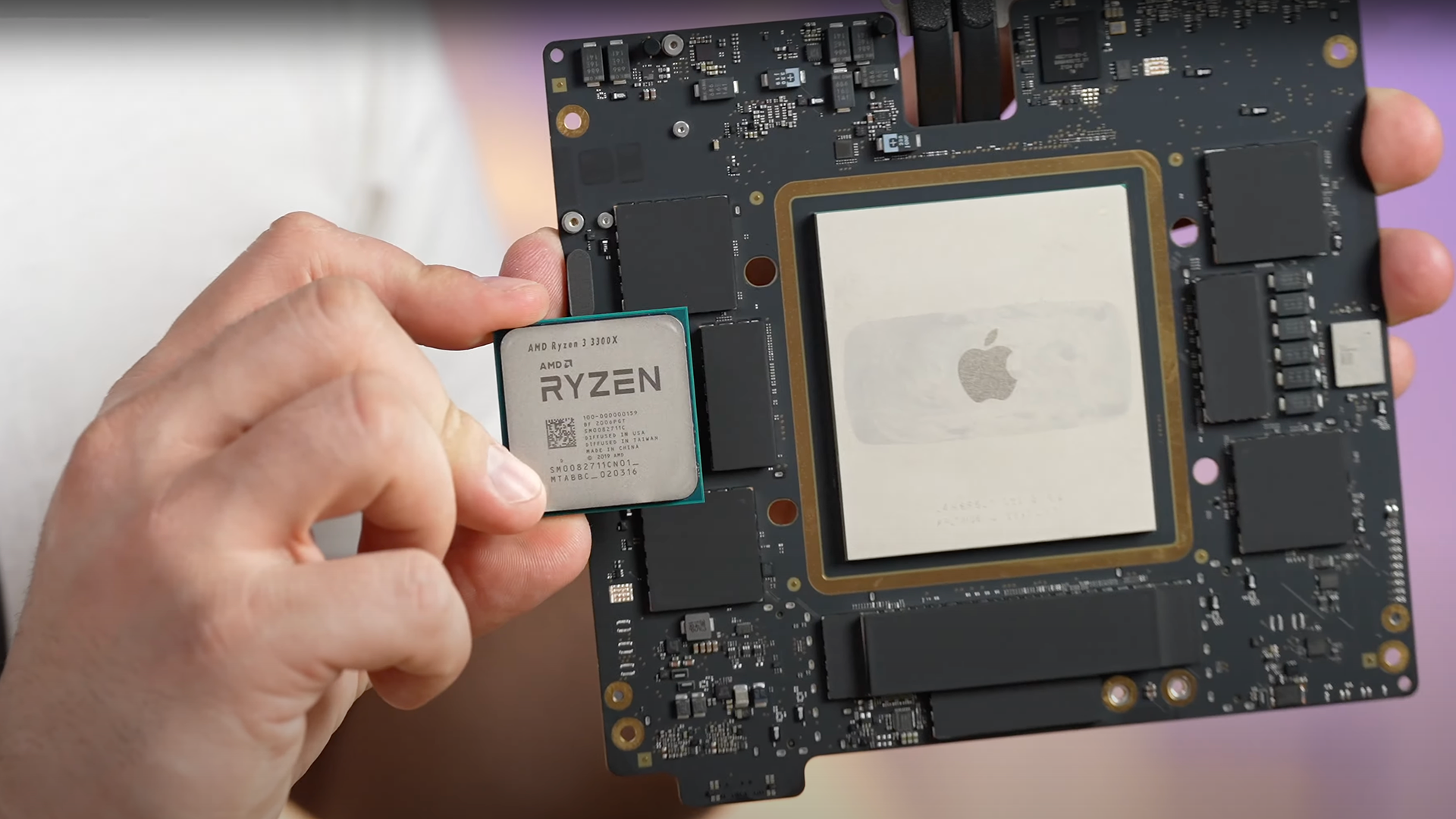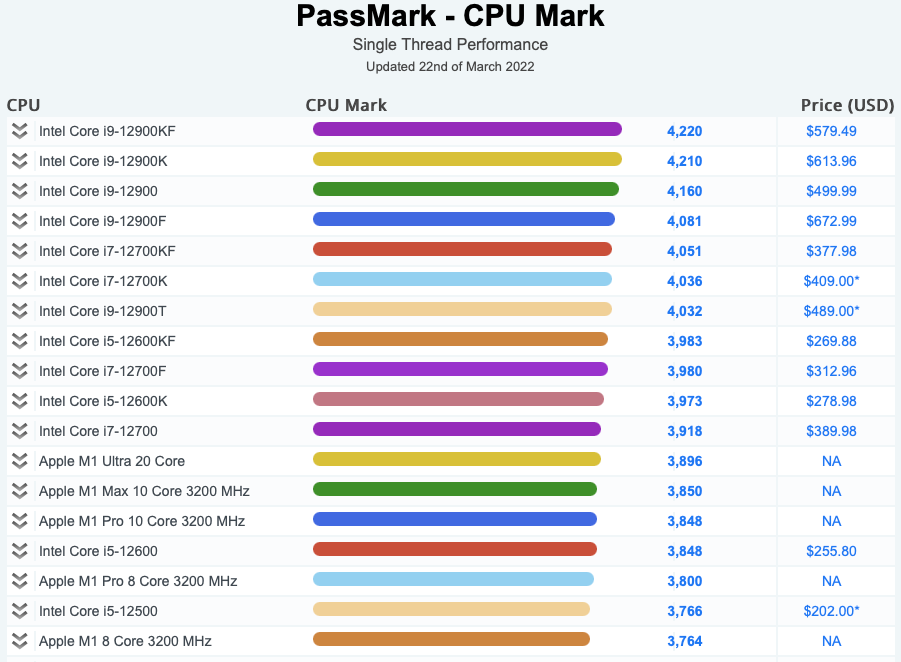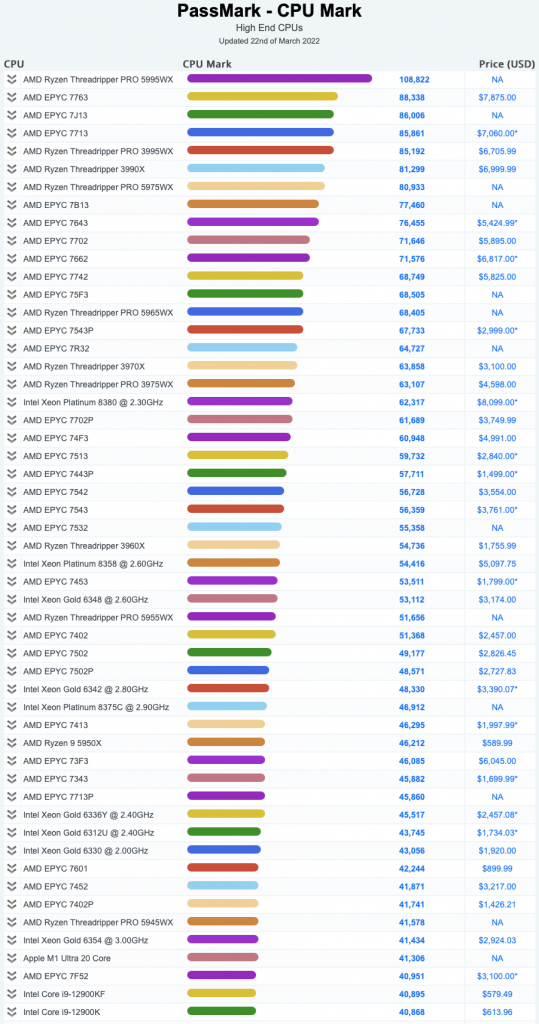News
Apple’s M1 Ultra Benchmarked: 2.6X Slower Than AMD’s Threadripper Pro 5995WX

More information regarding the performance and features of Apple’s Mac Studio desktops becomes available as more of them are used by inquisitive end-users. It appears that a Mac Studio powered by Apple’s 20-core M1 Ultra processor has been used to run the CPU benchmarks developed by PassMark Software. It outperformed most desktop CPUs in single-thread performance, but it fell short of competing with high-end workstation-grade processors.
Single-Thread: On-Par with Alder Lake
CPU designers at Apple have long sought to optimize single-thread performance because they feel it reduces the battery consumption of their mobile devices and desktop computers. With the M1 Ultra processor clocking in at roughly 3.20 GHz, it should come as no surprise that its single-thread performance is on par with that of the Core i7-12700 with its highest core clocking in at 4.90 GHz in PassMark’s single-thread CPU performance testing (3,896 vs 3,918 points).

Its clock speed does not grow substantially higher than 3.20 GHz, as it does on other M1s, including Apple’s M1 Ultra. When compared to the M1 Max, M1 Pro, and even the M1, the M1 Ultra’s massive system level caches (SLC) provide the majority of the maximum bandwidth required for single-thread workloads. However, when compared to the M1 Ultra’s monstrous memory subsystem (800GB/s aggregated bandwidth), the M1 Ultra does not make a significant difference with single-thread workloads when compared to the M1 Max, M1 Pro, and even the M1. If you are looking for single thread performance, all of these system on chips are outstanding.
General CPU Workloads: 2.6 Slower than Threadripper Pro
Apple’s M1 Ultra, which is equipped with 16 high-speed Firestorm cores and four energy-efficient Icestorm cores, claims to deliver impressive performance in multi-threaded tasks as well. The processor achieves a score of 41,306 points in PassMark’s CPU Mark, which synthetically assesses practically all of the CPU’s capabilities, including integer and floating-point math, as well as other features such as compression, encryption, and physics simulation.
Though the score of 41,306 points in CPU Mark is a very good result that is even slightly higher when compared to Intel’s Core i9-12900KF (40,895), which can process more threads at the same time and runs at higher clock speeds in boost mode (despite having a base speed of 3.20 GHz), it is not high enough to be comparable to CPUs found in high-end workstations and servers.

This test yields a score of 46,212 points for AMD’s 16-core Ryzen 9 5950X processor and a score of 108,882 points for AMD’s 64-core monster Ryzen Threadripper Pro 5995WX processor, which outperforms Apple’s top-of-the-range workstation CPU by 2.6 times. When compared to Apple’s M1 Ultra, AMD’s 64-core Ryzen Threadripper Pro has more computational resources, even at a slower base clock speed of 2.70 GHz. This means that when running workloads that require every single arithmetic logic unit or floating-point unit, Ryzen Threadripper Pro will always be faster.













